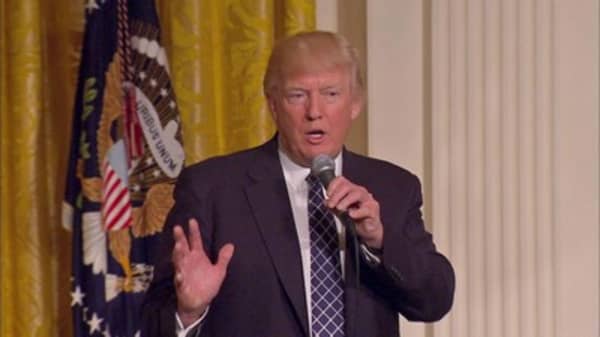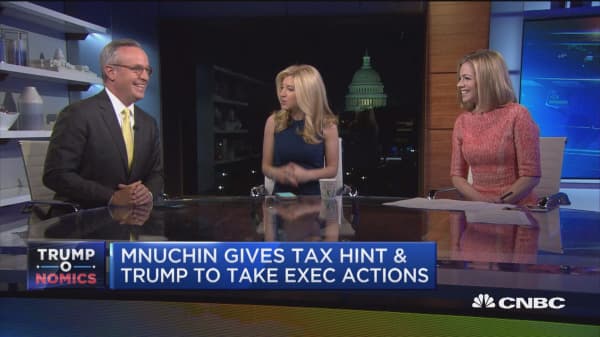Three months into the Trump administration, executives at public companies are wondering if the change in leadership will make much of a difference at all.
In first-quarter earnings calls, S&P 500 executives expressed both enthusiasm for the pro-business attitude of the Trump administration and concern about the sweeping changes he might make to public policy. But in the second quarter so far, the mood has grown more muted, according to a CNBC analysis.
The number of mentions of the president has decreased, and sentiment toward the new administration has shifted from optimism to doubt that promised changes will happen.
"There's still uncertainty," BlackRock CEO Larry Fink told analysts and investors on Wednesday." There are significant issues related to tax reform, infrastructure spending, and so we need to see how this all evolves."
Less than half the S&P 500 companies that have reported earnings so far in April mentioned the new president in their earnings calls with investors, according to a CNBC analysis. That's down from nearly 80 percent during the same period in January.






